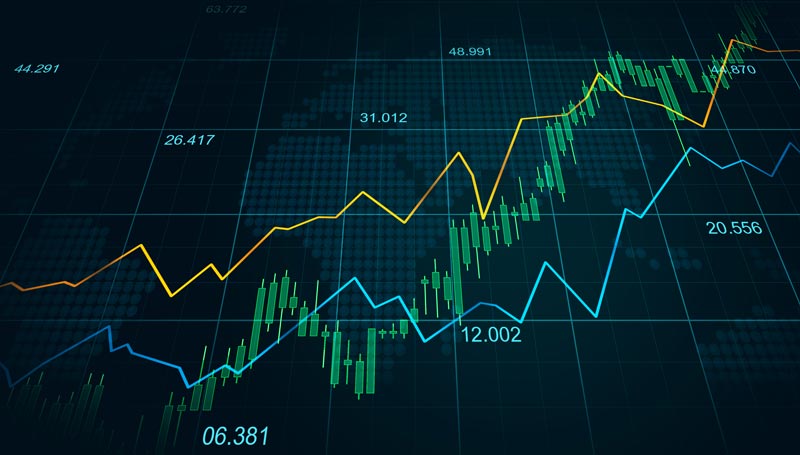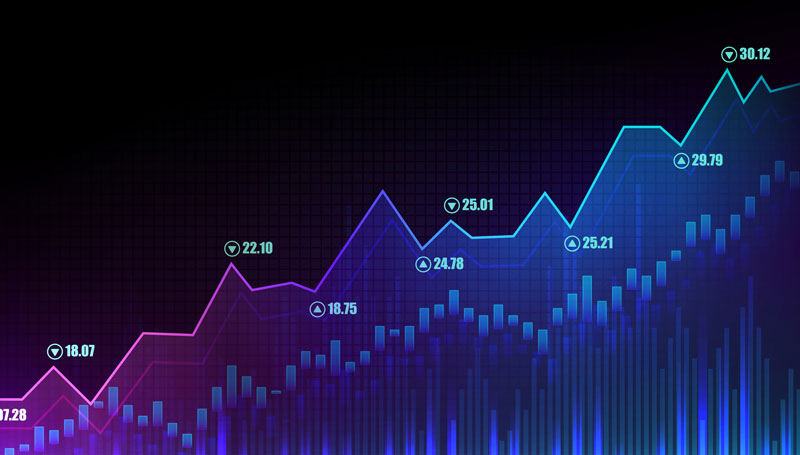

09.04.2019 – Daily report. Global stock trading is waiting. On the one hand, there is nothing new about the China-USA customs dispute. Rather, the conflict with the EU is now boiling up. On top of that, the Brexit is struggling. Furthermore, there are currently few interesting economic data available. A real directional decision for Wall Street will only come in the reporting season. Thus, the DAX is shimmying just under 12,000 points.
DAX moving sideways
Lead time on the stock exchange: Recently there was hardly any movement in real-time prices on the trading platform. The German benchmark index moved slightly lower in early Tuesday trading. In this market, at best CFD traders can earn a little money, thanks to the leverage. Brokers are waiting for interesting news. However, there were few of them.

Positive news in short supply
According to the Chinese television channel CCTV, the US and China have made further progress in their recent trade talks. Negotiations are expected to continue this week. That was it.
A report on the customs dispute with the EU caused restraint: Washington is targeting the European aircraft manufacturer Airbus because of the subsidies. The US administration published a list of products that could be subject to tariffs in retaliation – including commercial aircraft, aircraft components, dairy products and wine.
Scepticism prevails in the constant misery surrounding the Brexit. The danger of Britain’s chaotic exit from the EU this Friday has still not been averted. We are eagerly awaiting the upcoming Brexit summit. After all, the pound sterling has so far accepted all the capers in a largely stable and calm manner.
Asia and New York undecided
Investors in Frankfurt received no real impulses from overseas. The Nikkei 225 closed 0.2 percent higher at 21,803 points. The CSI 300 went unchanged at 4,059 points out of the day.
Wall Street had already closed on Monday evening without a clear trend. The Dow Jones lost 0.3 percent to 26,341 points. The Boeing share, which is strongly weighted in the Dow, once again made negative headlines. Here, the reduction in production of the 737 MAX pulled the price down. Also according to a report of the “South China Morning Post” the China Aircraft Leasing (CALC) put the orders for the breakdown plane on ice after two crashes of a 737 Max and various flight bans.
For the S&P 500, it went up a minimum of 0.1 percent to 2896 points. The high-tech stocks in the Nasdaq 100 recorded a profit of 0.3 percent to around 7600 positions. Data from US industry turned out as expected: Order intake in February was down 0.5 percent on the previous month.
This is what the day brings
The Tuesday deadline situation looks rather sparse. At 3 p.m. German time, the World Bank and the International Monetary Fund will present their views in the World Economic Outlook at their spring meeting.
Late in the evening at 22.30 the American Petroleum Institute reports its inventory data for crude oil stocks.
The Bernstein Bank wishes you a successful day trading!
Important Notes on This Publication:
The content of this publication is for general information purposes only. In this context, it is neither an individual investment recommendation or advice nor an offer to purchase or sell securities or other financial products. The content in question and all the information contained therein do not in any way replace individual investor- or investment-oriented advice. No reliable forecast or indication for the future is possible with respect to any presentation or information on the present or past performance of the relevant underlying assets. All information and data presented in this publication are based on reliable sources. However, Bernstein Bank does not guarantee that the information and data contained in this publication is up-to-date, correct and complete. Securities traded on the financial markets are subject to price fluctuations. A contract for difference (CFD) is also a financial instrument with leverage effect. Against this backdrop, CFD trading involves a high risk up to the point of total loss and may not be suitable for all investors. Therefore, make sure that you have fully understood all the correlating risks. If necessary, ask for independent advice.





















